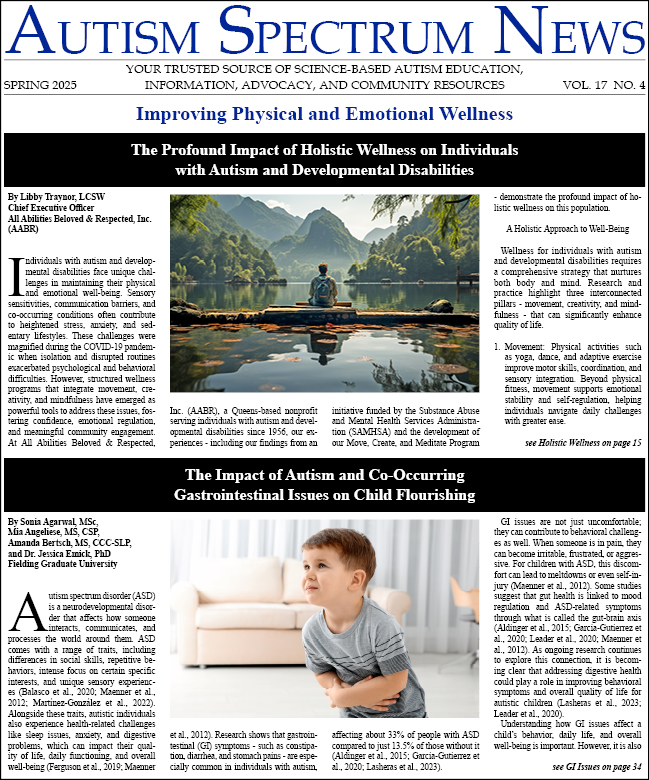-
Diagnosis, Resources, and Behavior Changes – A Journey of Self-Discovery
Time changes our framing of incidents. When they go poorly, it’s not unusual to replay them in our minds in search of a more acceptable arc. This narrative is what I’ve learned from a situation that resolved well but which has also coughed up useful lessons. In the two or three years...
-
Tapping Into Strengths: Empowering Autistic Individuals to Self-Advocate in the Workplace
Up to 85% of autistic individuals with a college degree are unemployed or underemployed (Autism Society). This often is attributed to a variety of factors, including differences in communication and challenges in reading social cues and making eye contact, all of which are an integral part of the...
-
Building Self-Advocacy Skills in Autistic Young Adults
Adulthood is the time when teachers and parents can no longer advocate for their children the same way they could during the school-age years. Much of it becomes the responsibility of the adult. At the beginning of my career, I had the opportunity to develop an evidence-based curriculum in...
-
Embracing Neurodiversity: A Social Revolution of Autism and New Perspectives
Over the past 25 years, I have noticed a movement that has been gaining momentum, aiming to reshape societal views and acceptance of autism and the broader community of individuals with intellectual and developmental disabilities (IDD). If I could name this movement, I would call it Embracing...
-
Fostering Independence for Young Adults with Autism and Low Vision
VanBergeijk and LaVoie (2024 April & January) established in previous issues of Autism Spectrum News that “autism is the most commonly reported co-existing developmental disorder in children with blindness and other severe visual impairment.” They highlighted the need for a proper...
-
Empowering Autistic Communities: The Role of Co-Creation in Research Partnerships
Participatory research is an approach that can empower autistic community members through the co-creation of knowledge, addressing power imbalances, and fostering meaningful collaboration between autistic community members and academic researchers (Stack & McDonald, 2018). By actively involving...
-
Navigating Career Pathways: Challenges and Opportunities for Autistic Individuals
It is, indeed, not easy for many people to make sense of the job market, but often, additional obstacles make autistic people’s lives much more challenging. With both finding a job and sustaining it, and at every level of the employment process, we face challenges which, unfortunately, may affect...
-
Empowering Autistic Job Seekers Through Mentorship
When it comes to job search and employment, autistic adults may face specific challenges, including difficulties with social interactions, executive functioning, and communication. Additional obstacles include employer bias and a lack of understanding. These issues create significant barriers to...
-
The Case for Acceptance and Commitment Therapy for Sensory Processing in Autistic Young Adults
In my career as a clinical service provider for Autistic young adults, I have seen how understanding the senses can impact one’s emotions. It is so important to be aware of how Autistic people learn, communicate, and think with all of their senses. Recently, The DSM-5TR has included “sensory...
-
Service Providers Need Enhanced Autism Education from the Autistic Community
When I was finally diagnosed in late 2000, public awareness about the autism spectrum, especially the milder variants such as Asperger Syndrome as it was then known, was at best minimal. In particular, the vast majority of mental health professionals (the service providers most likely to address...




